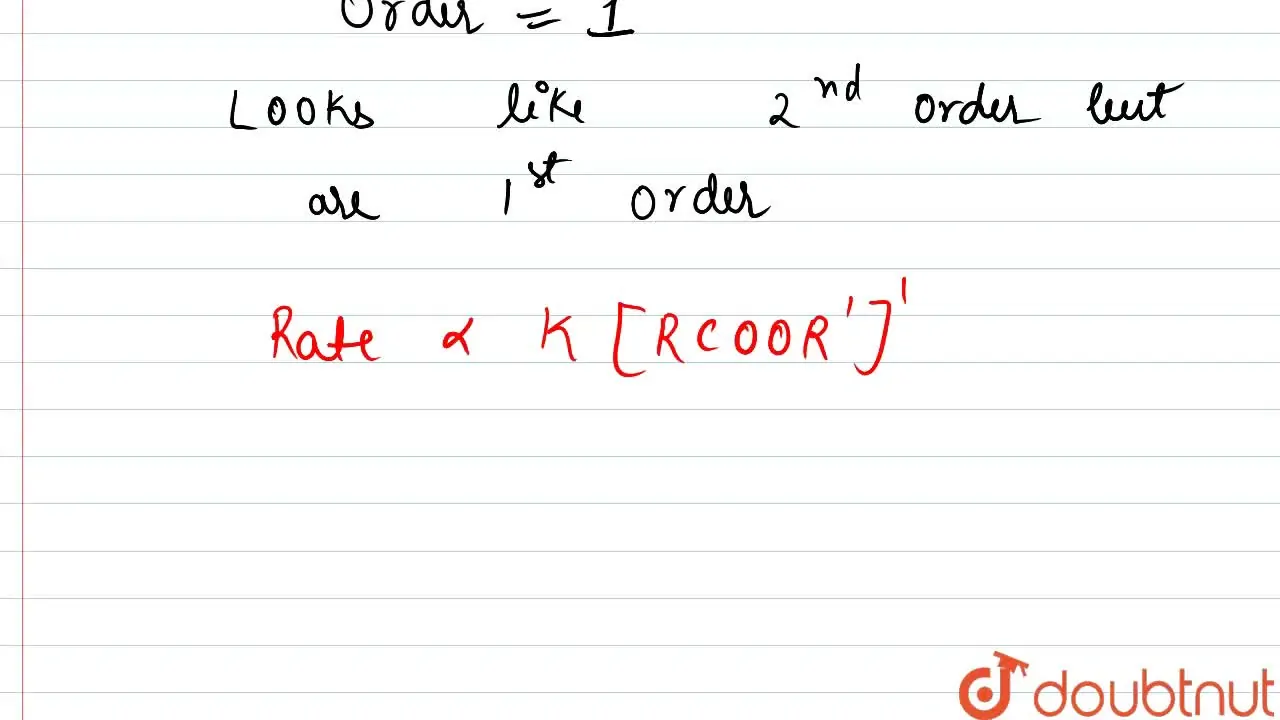ROOR'+H2O(HCl)→RCOOH+R'OH
What type of reaction is this ?
(a) (i) 
(ii) 
(iii) 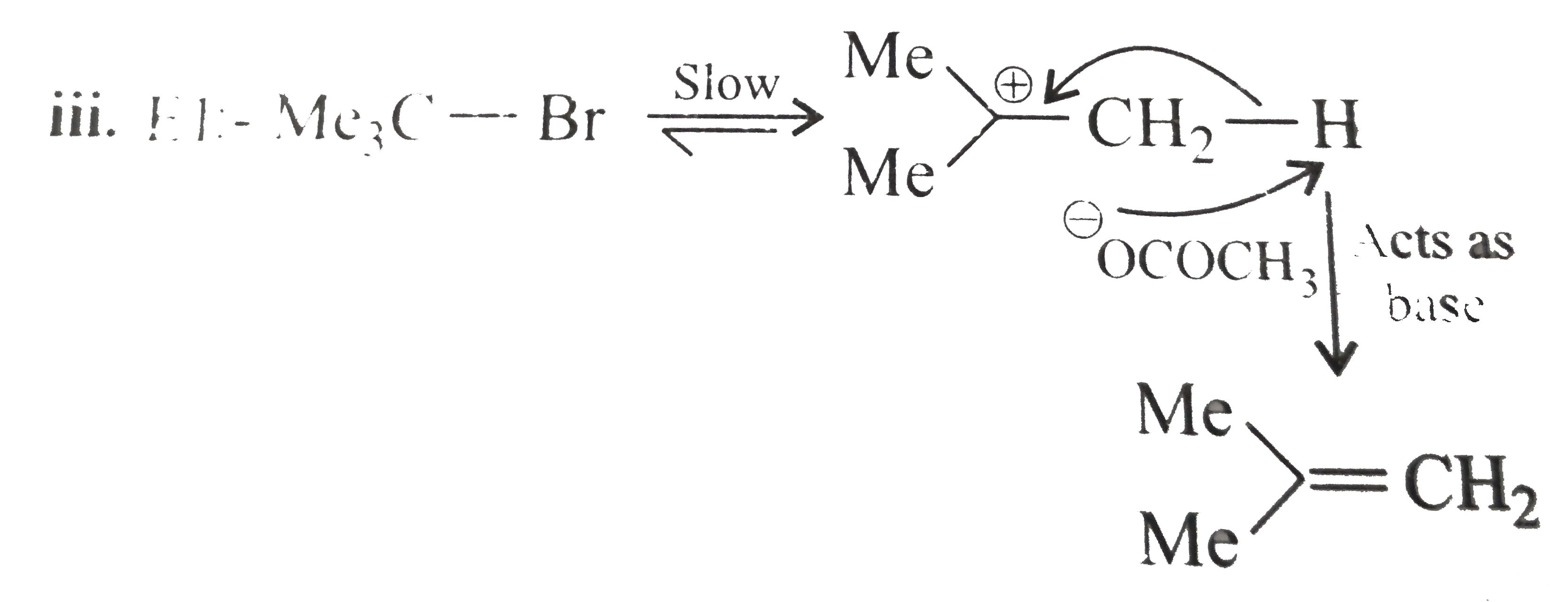
The carboxylate anion (I) is sufficiently basic and it would bring about the elimination in 3∘ alkyl halides.
(b) It can be prepared by the Markovnikov's addition of CH3COOH with isobutene.
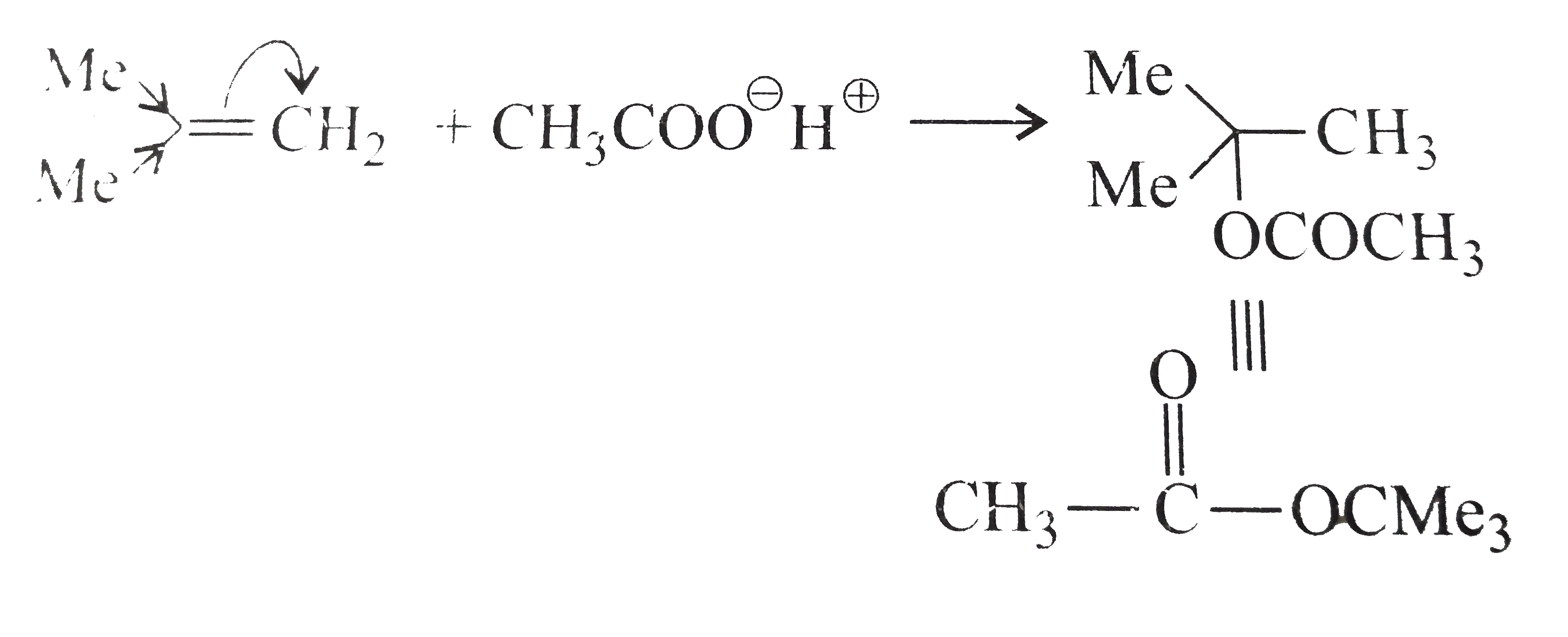
( c) More the EDG, lesser favoured is the reaction (esterification). More the EWG, more favoured is the reaction.
ED power [(+I) effect] increases from (I) to (IV). So the rate of esterification of (I)>(II)>(III)>(IV).
Alternatively,as the size of substituents on the α−C atom increases, the tetrahedrally bonded intermediate becomes more sterically hindered. The greater the crowding, the more sterically hindered. The greater the crowding, the larger is ΔH of the activation of the transition state and the slower is the reaction.
(d) The reaction of RCOOH with HCl to give RCOCl and H2O is a reversible reaction. RCOCl and H2O react rapidly to give starting material. H2O cannot be removed as it is formed as in the case of ester formation because HCl(g) would excape.
RCOOH+HCl⇔RCoCl+H2O.
( e) Reaction of RCOOH with R'OH is slow, and the equilibrium must be shifted to the right by removing H2O.
RCOOH+R'OH⇔RCOOR'+H2O
RCOCl is easily prepared under non-equilibrium conditions if SOCl2 is used. The exothermic reaction of RCOCl with an alcohol completes by evolving HX(g).
RCOCl+R'OH→RCOOR'+HCl,ΔH= negative.
(f) N3H is slightly more acidic than CH3COOH.NӨ3 is slightly less basic than CH3COOӨ and , therefore, NӨ3 is a slightly better leaving group. RCON3 is thus less reactive than RCOCl but a little more reactive than the anhydride.
Related Playlists
- BOOK - CENGAGE CHEMISTRY ENGLISHCHAPTER - CARBOXYLIC ACIDS AND THEIR DERIVATIVESEXERCISE - Solved Examples17videos
CARBOXYLIC ACIDS AND THEIR DERIVATIVES
- BOOK - CENGAGE CHEMISTRY ENGLISHCHAPTER - CARBOXYLIC ACIDS AND THEIR DERIVATIVESEXERCISE - Exercises (Subjective)19videos
CARBOXYLIC ACIDS AND THEIR DERIVATIVES
- BOOK - CENGAGE CHEMISTRY ENGLISHCHAPTER - BIOMOLECULESEXERCISE - Exercises Archives (Analytical And Descriptive)8videos
BIOMOLECULES
- BOOK - CENGAGE CHEMISTRY ENGLISHCHAPTER - CHEMICAL KINETICSEXERCISE - Archives Subjective23videos
CHEMICAL KINETICS
Similar Questions
CH3COOC2H5(aq)+H2O(l)H+(aq)−−−−−→CH3COOH(aq)+C2H5OH(aq). What type of reaction is this?
View SolutionFor the reaction, R−XSlow−−→R⊕+X⊕,
R⊕+ɵOHFast−−→ROH
Which type of reaction coordinate diagram represents the above reaction mechanism?
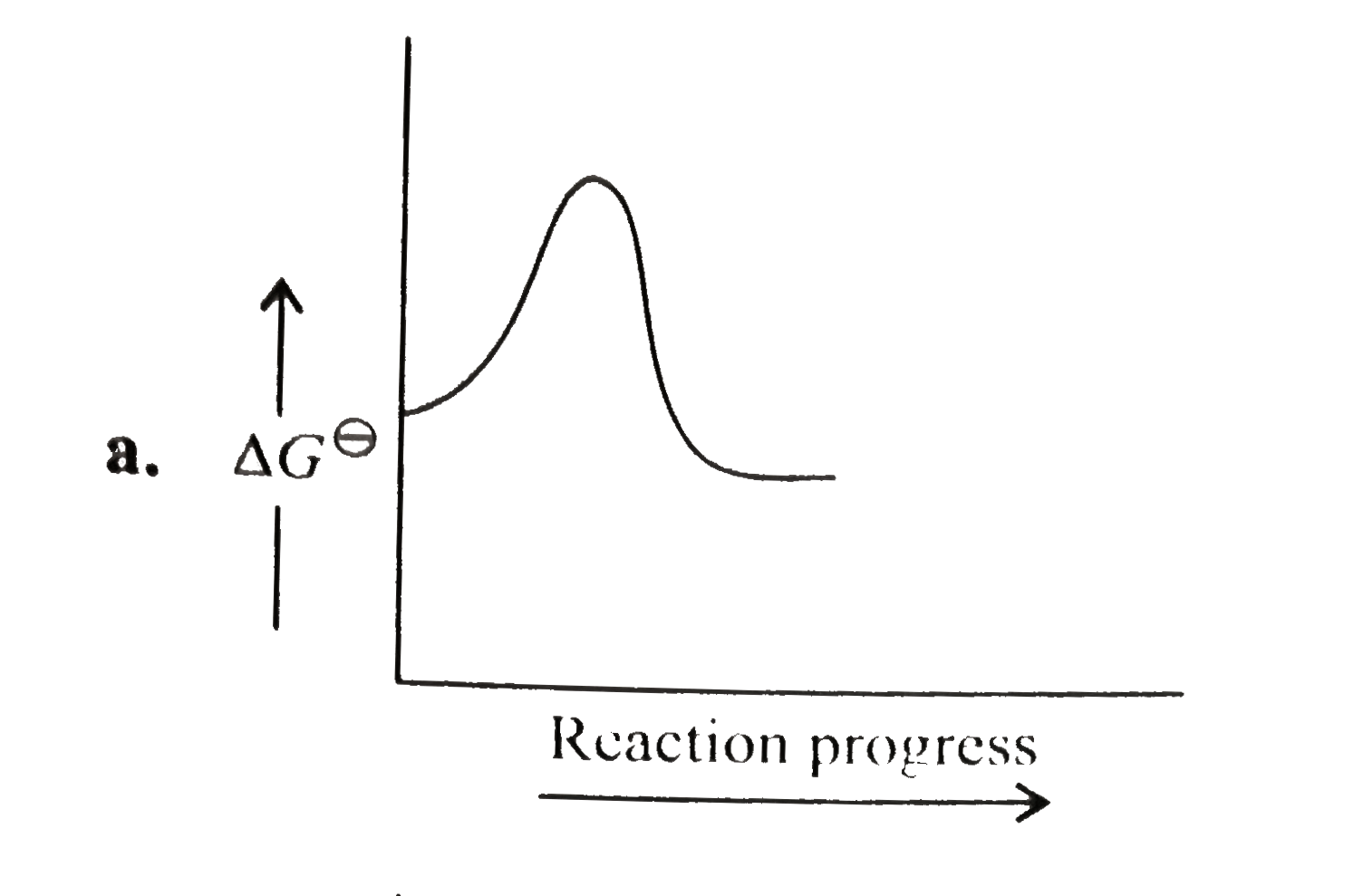
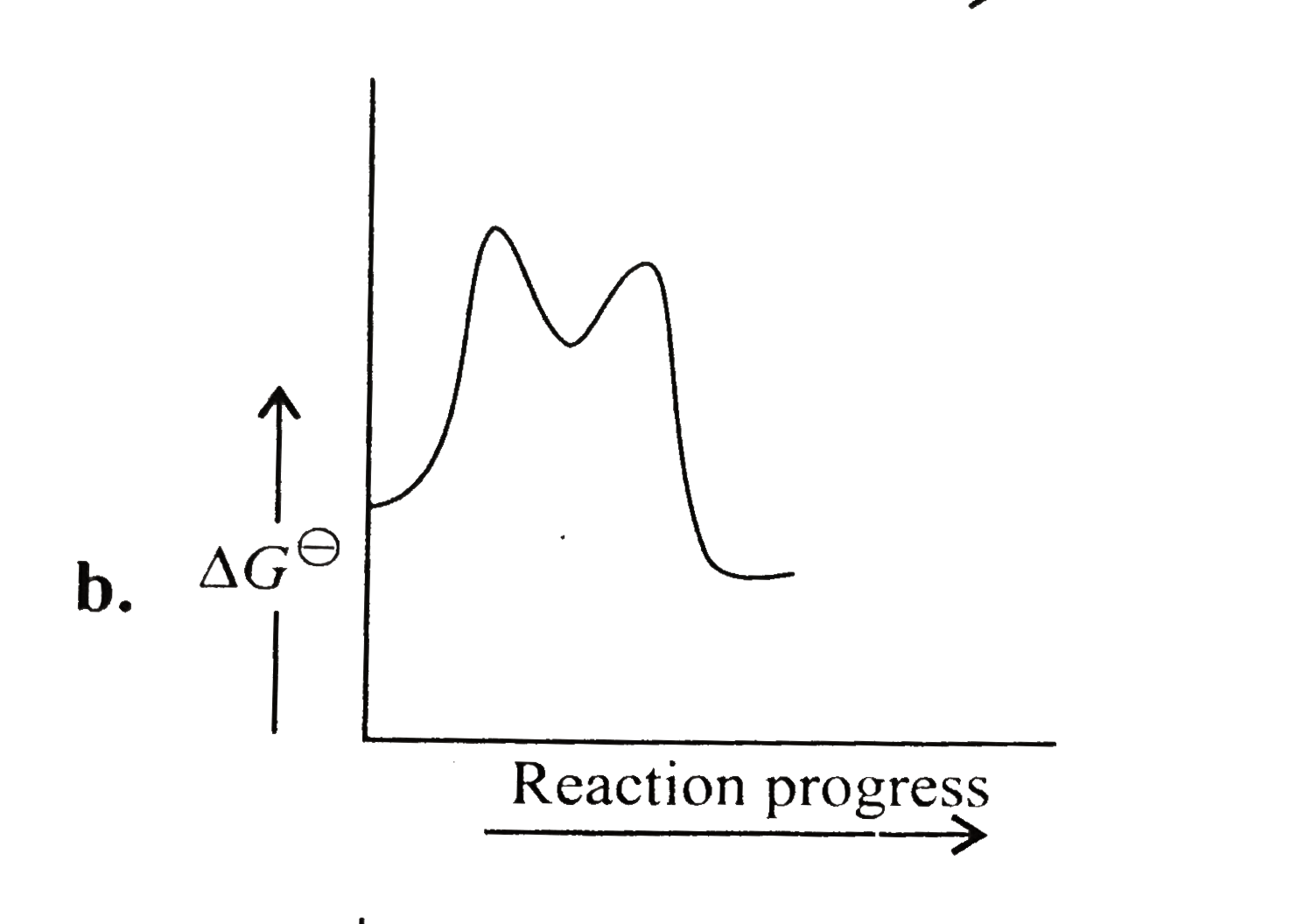
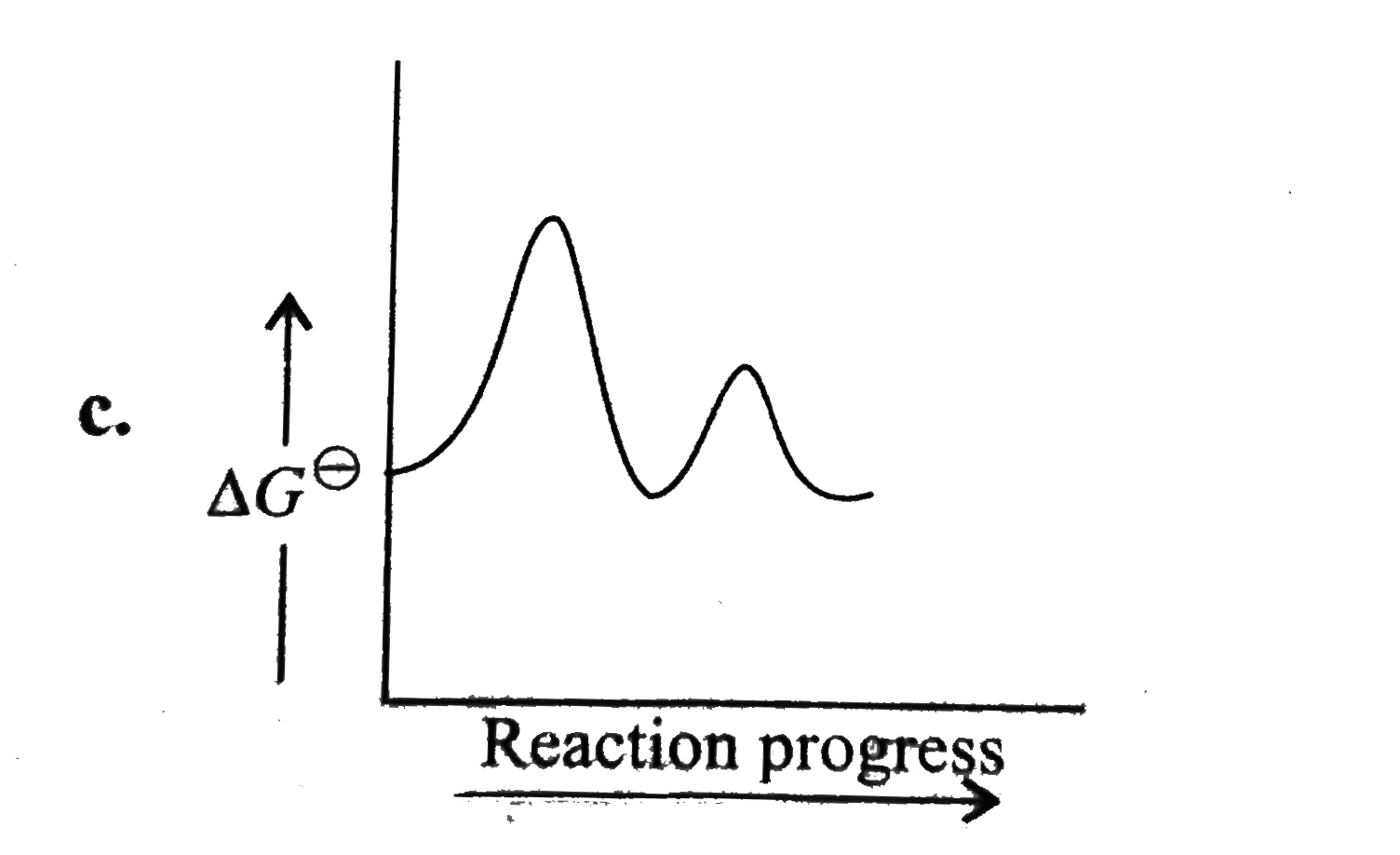
d. This is SNl reaction where no tranistion state will be presentView SolutionIdentify the type of reaction
NaOH+HCl→NaCl+H2OView SolutionAssertion (A) : The order of the reaction,
CH3COOC2H5+H2O⇔CH3COOH+C2H5OH
is 2. Reason (R ): The molecularity of this reaction is 2.View SolutionThe acidity of the compounds RCOOH,H2CO3,C6H5OH,ROH decreases in the order:
View SolutionR−OH+HX→R−X+H2O
In the above reaction the reactivity of different alcohols isView SolutionR−OH+HX→R−X+H2O
In the above reaction the reactivity of different alcohols isView SolutionRCOOH→RCH2COOH. This conversion is known as reaction:
View SolutionReaction (A) S−2+4H2O2→SO2−4+4H2O
(B) Cl2+H2O2→2HCl+O2
The true statement regarding the above reactions is :View SolutionWhich of the following statements are correct about the following reaction :
R−O∣∣C−OH+R'OHH⊕⇐⇒RCOOR'+H2O
(a)Rate =K[RCOOH][R'OH][H+]. First order in acid, alcohol, and H⊕ , third order overall.
(b)Rate : K[RCOOH][R'OH]. First order in acid and alcohol , second order overall.
(c)Slow and rate-determining step (R.D.S) is the addition of alcohol to the protonated acid.
(d)Slow and rate-determining step (R.D.S) is the addition of acid to the protonated alcohol.View Solution

